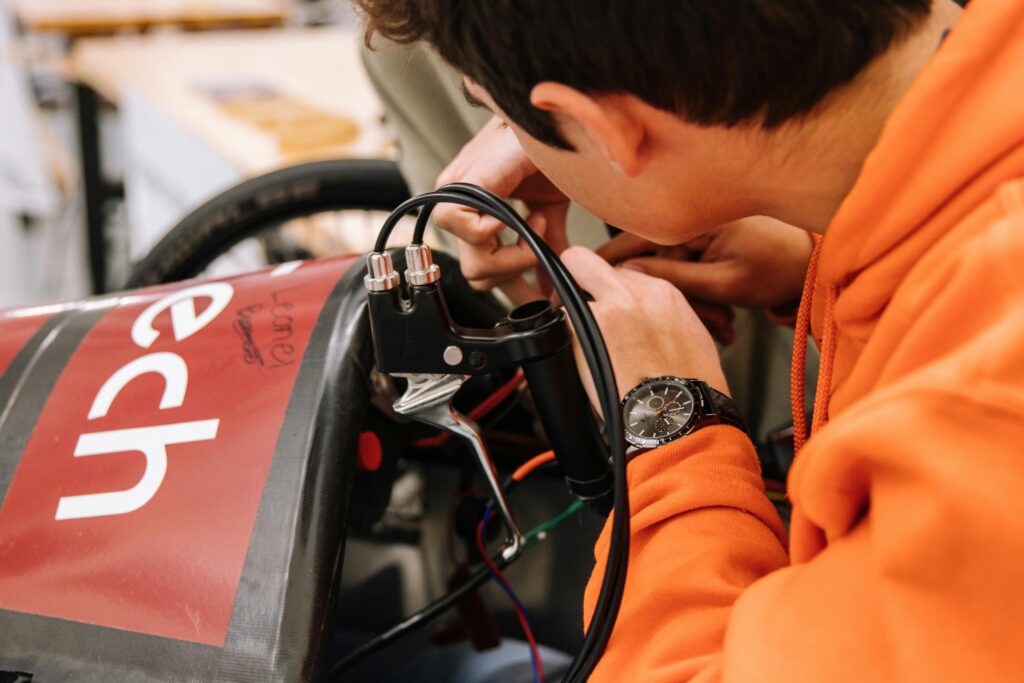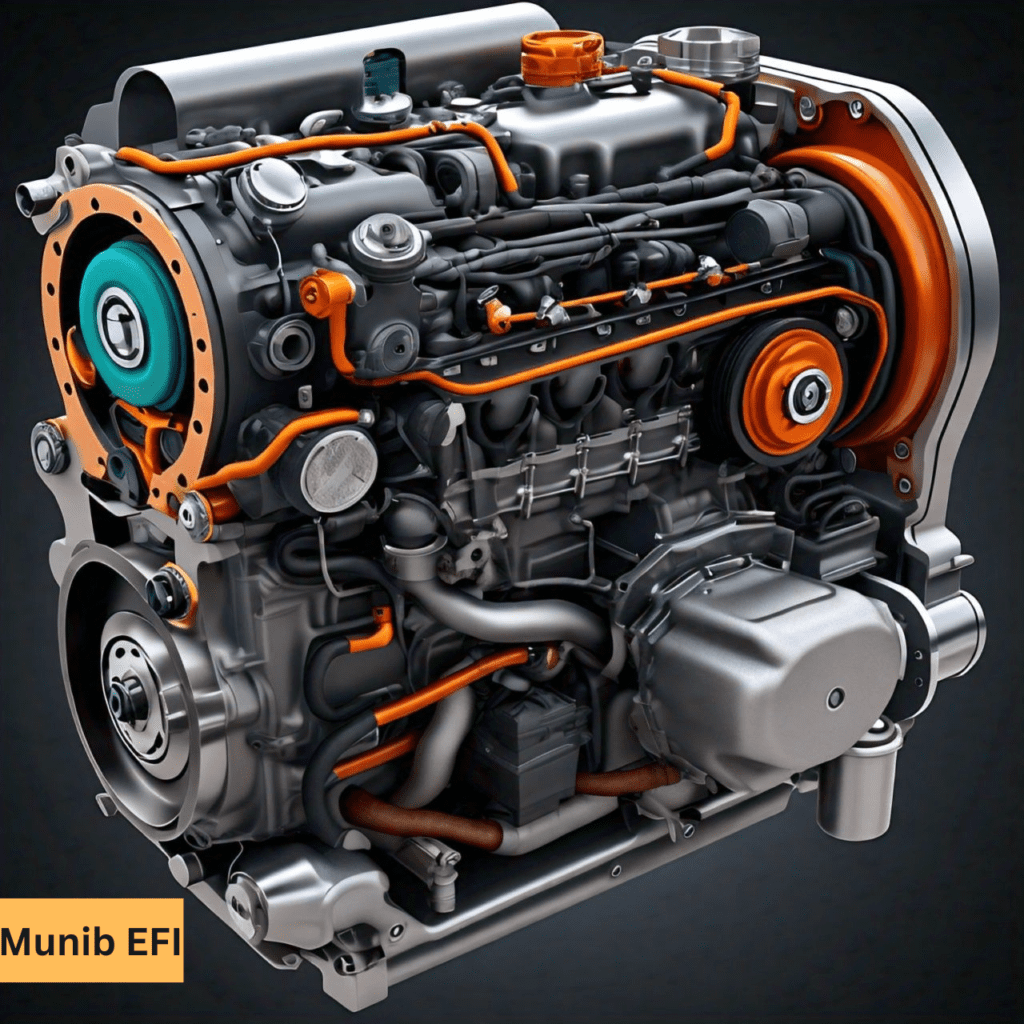Car electrics play a crucial role in the overall performance of your vehicle. When problems arise, it’s essential to recognise the signs early to avoid further complications. One of the most apparent indicators is dimming headlights, especially noticeable at night. This can signal issues with the alternator or battery. Flickering dashboard lights or erratic instrument panel behaviour also often point to car electric issues. Another tell-tale sign is the failure of power windows or door locks, which can be linked to faulty wiring.
Moreover, the ignition system could be compromised if your vehicle struggles to start. A slow crank or complete silence when turning the key is a major red flag. Intermittent loss of radio or air conditioning function can also hint at deeper car electrics issues. It’s critical not to dismiss unusual smells, particularly a burnt plastic odor, which might indicate overheating wires. The sooner you address these signs, the better chance you have of preventing more costly repairs down the road.
10 Big Signs Your Car Has an Electrical Problem
Your car’s electrical system is a complex network of components that keep your vehicle running smoothly. However, when electrical problems arise, they can lead to a host of issues that affect your car’s performance and safety. Being aware of the key signs of electrical problems can help you address them before they lead to costly repairs or unsafe driving conditions. Below, we’ll walk through 10 big signs that your car may be facing electrical issues and what they could mean.

1. Your Car Won’t Start
One of the most obvious signs of an electrical problem is when your car refuses to start. You might experience a clicking sound when turning the key, or sometimes, the car is completely unresponsive. In such cases, the problem could stem from various electrical components, including the battery, starter motor, or ignition switch. Electrical issues are often to blame, particularly when you’ve ruled out fuel-related causes. If your car struggles to start consistently, it’s crucial to have the electrical system inspected.
2. Dead Battery or Leakage
A dead battery is a common issue that signals potential car electric issues. If you find that your car’s battery dies frequently, even after charging or replacement, there’s likely an underlying electrical problem. Leakage around the battery terminals or corrosion could also indicate that the battery isn’t operating as it should. Faulty wiring, a malfunctioning alternator, or a parasitic drain (where electrical components drain the battery even when the car is off) could all be the root causes.
3. Malfunctioning Alternator
The alternator is vital for keeping your battery charged while the engine is running. If it starts malfunctioning, your battery won’t receive the proper charge, leading to a whole host of issues. Dimming headlights, weak or slow power windows, and electrical components like the radio or air conditioning failing are all signs of a failing alternator. Ignoring these symptoms can result in your car stalling or breaking down entirely, so it’s important to get the alternator checked at the first signs of trouble.
4. Wiring Problems

Wiring problems can cause a wide range of signs that something isn’t right with your car’s electrical system. Damaged, corroded, or frayed wires can lead to electrical shorts, flickering dashboard lights, or malfunctioning headlights. If you notice inconsistent behavior from your vehicle’s electrical systems, such as lights randomly turning off or gauges fluctuating, faulty wiring may be to blame. These issues not only disrupt the car’s performance but can pose serious safety risks if left unattended.
5. A Burning Smell Inside the Car
A burning smell inside the car is never a good sign, especially when it comes from the electrical system. Overheating wires, electrical shorts, or malfunctioning components can cause this odor. It’s a serious indicator of a potential fire hazard, and you should never ignore it. If you smell something burning while driving or after turning off the engine, it’s crucial to stop immediately and have a professional inspect the electrical system. Continuing to drive with this issue could result in significant damage or even an electrical fire.
6. Faulty Starter Motor
The starter motor is responsible for turning the engine over when you turn the ignition key. If your battery is fully charged, but your car still won’t start, the problem could be a faulty starter motor. Symptoms include a clicking noise when you turn the key or the engine failing to crank at all. Without a functioning starter motor, your car simply won’t start, making this an urgent issue that requires immediate attention from a mechanic.
7. Bad Fuse Box
Your car’s fuse box plays a critical role in protecting the electrical circuits from overload. A blown fuse might seem like a minor issue, but if the fuse box itself is faulty, it can lead to widespread electrical failures throughout your vehicle. Malfunctioning lights, power windows, or even the radio can all be linked to a bad fuse box. If multiple electrical components stop working at once, it’s worth checking the fuses first before assuming the worst.
8. Bad Spark Plugs
Faulty spark plugs can damage a vehicle’s ignition system, causing the engine to stall, idle, or accelerate. When the spark plugs are worn or damaged, the spark required for ignition is not produced. This does not affect the performance of the car, but it reduces the efficiency of the oil. If you notice that your car slows down when you step on the gas pedal, or you have trouble maintaining a smooth idle, it’s time to replace the headlights to improve performance.
9. Malfunctioning Ignition Coils
Ignition coils are essential for transforming the battery’s voltage into the energy needed to power the spark plugs. When the ignition coils malfunction, it can result in engine misfires, loss of power, or poor fuel economy. Common symptoms of bad ignition coils include rough idling, trouble accelerating, and frequent stalling. If left unchecked, malfunctioning ignition coils can lead to more severe engine problems, making it essential to address this issue as soon as it arises.
10. Engine Control Module Failure
The Engine Control Module (ECM) is like the brain of your car, controlling various engine functions. If the ECM fails, it can cause serious car electrics issues, including engine stalling, poor performance, or even complete engine shutdown. In many cases, the “check engine” light will illuminate the dashboard, signalling an issue with the ECM. Diagnosing ECM problems requires specialized tools and expertise, so it’s important to take your vehicle to a professional mechanic for a thorough inspection.
Car Electric Repairs in Islamabad
If you’re experiencing any of the signs mentioned above, it’s crucial to get your vehicle checked by a certified mechanic In Islamabad, there are expert car electric repair services available that specialize in diagnosing and fixing electrical problems. Whether you’re dealing with a failing alternator, wiring issues, or a malfunctioning starter motor, professional technicians can get your car back on the road safely and efficiently. Ignoring these car electrics issues can lead to more significant, costlier repairs down the line, so it’s always better to be proactive.
Contact Us
If your car is showing any of the signs of electrical trouble, don’t hesitate to reach out for assistance. Contact us today to schedule an inspection or service. Our team of experienced technicians is ready to provide expert electrical repairs to ensure your vehicle is safe and performing at its best. Whether it’s a minor wiring issue or a major component failure, we’re here to help keep your car running smoothly. Reach out now to avoid costly repairs and keep your car in optimal condition.


